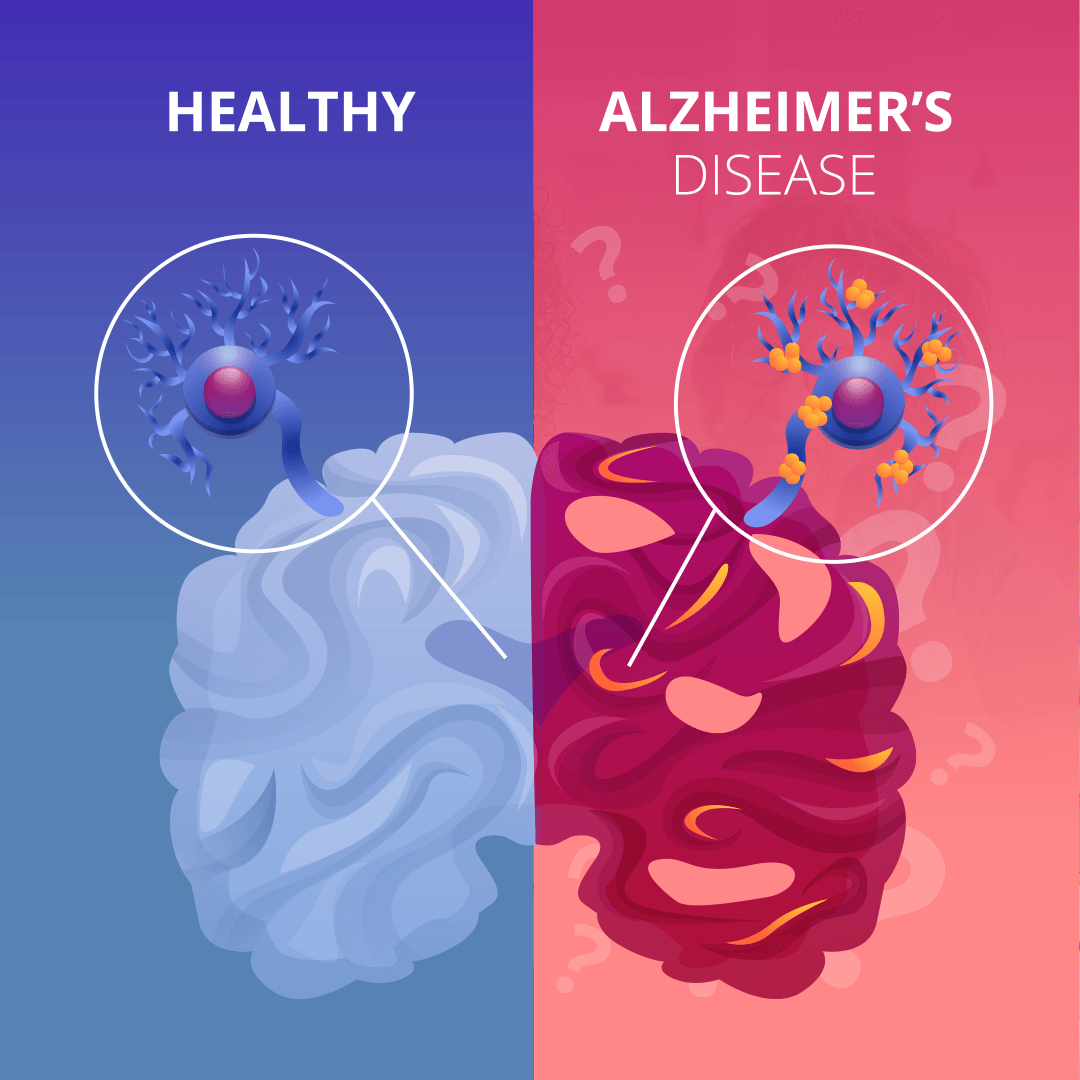During Dr. Meharvan Singh’s talk on the Neurobiology of Estrogens, Progestins, and Androgens and their implications on Brain Aging, and Neurodegenerative Diseases, he mentioned estrogen-deprivation causes women to become more vulnerable to Alzheimer’s disease than men. To seek a better understanding of the effect of estrogen on Alzheimer’s disease, Yu-jia Song and their fellow researchers studied the effects of estrogen-replacement therapy (ERT), which is treatment used for menopausal syndrome, through epidemiological studies on post-menopausal women in the research article “The Effect of Estrogen Replacement Therapy on Alzheimer's Disease and Parkinson's Disease in Postmenopausal Women: A Meta-Analysis,” (Song et al. 2020). The underlying mechanism of estrogen on neurodegenerative diseases is due to the fact that estrogen affects the conduction of nerve signals. Estrogen is also found to be a regulatory factor for multiple genes associated with neurodegenerative diseases (Song et al. 2020). The results from this study indicated that ERT has resulted in a better positive effect on treatments for Alzheimer’s disease in post-menopausal women (Song et al. 2020). However, it is important to note that the study had its limitations of the inability to remove confounding variables such as age, country, socioeconomic status, and health status that could potentially affect the neurodegenerative disease progression as well (Song et al. 2020). The correlational findings do give further evidence to support Dr. Meharvan Singh’s talk about how neuroendocrinology may reveal treatments for the underlying mechanisms of many known neurodegenerative diseases.
Though there may not be a cure for Alzheimer’s disease, scientists at Biogen and Neurimmune have created the first drug that directly deals with the pathology of the disease rather than just reducing symptoms. Aducanumab, the first FDA-approved medication for Alzheimer's disease, is currently in clinical trials. On June 7th, 2021, Aducanumab, currently sold under the brand name of Aduhelm, received fast-track or accelerated approval from the United States Food and Drug Administration (FDA). The Accelerated Process of FDA/EMA Approval is an expedited review designated for new developing medications for life-threatening conditions that do not have current medical cures. This finding is based on the amyloid hypothesis of Alzheimer’s disease that synaptic dysfunction and neurodegeneration are primarily caused by Aβ aggregate toxicity.
From the research article, “The Antibody Aducanumab reduces Aβ plaques in Alzheimer’s disease,” Jeff Sevigny and his fellow researchers claimed that Aducanumab, which is a human monoclonal antibody created by Reverse Translational Medicine Technology, increases Aβ plaque clearance by selectively binding to Aβ aggregates (Sevigny et al. 2016). The study utilized MMSE, Global Clinical Dementia Rating (Global CDR), Free and Cued Selective Reminding Test (FCSRT), Neuropsychological Test Battery (NTB) and the Positron Emission Tomography standard uptake value ratio (PET-SUVR) to measure the progression of AD symptoms. . The MMSE was used to determine what stage of AD the subject was in. Global CDR was used to determine the severity of dementia while FCSRT was used to determine baseline in memory deficits. The NTB was used to determine the cognitive deficits in Attention, Language, Memory, Spatial, and Executive Functions. Lastly, PET-SUVR was used to determine whether the drug was able to reduce the amount of Aβ aggregates. Results indicated that the drug was able to reduce Aβ aggregates in a dose-dependent and time-dependent manner.
However, in recent peer reviews of the paper, Rajesh Tampi and his colleagues concluded that Aducanumab is not as effective as the first paper suggested and needs to be tested further before being used in more human clinical trials (Tampi et al. 2021). It was revealed after further analysis of the data that Aducanumab only binds to soluble oligomeric and insoluble Aβ aggregates, not monomer Aβ42 which is the most amyloidogenic or toxic form of Aβ that causes AD. Furthermore, it was revealed that there are serious adverse side effects of Aducanumab. They include ARIA, amyloid-related imaging abnormalities and superficial siderosis of the central nervous system (Tampi et al. 2021). Although the implications of this result would have been a groundbreaking treatment for a chronic incurable disease that devastates millions of lives, it is critical to ensure that the research conclusions are not overlooking the potential adverse side effects of the medication. People's lives are at stake, therefore our responsibility as neuroscientists is to conduct more diligent research and venture into different intersectional perspectives for finding a cure for Alzheimer's Disease.
References
Sevigny, Jeff et al. "The Antibody Aducanumab Reduces Aβ plaques in Alzheimer's disease." Nature,
vol. 537, 1 Sept 2016, pp.50-56, doi:10.1038/nature19323. Accessed on 10 Oct. 2022.
Song, Yu-Jia et al. "The Effect of Estrogen Replacement Therapy on Alzheimer's Disease and
Parkinson's Disease in Postmenopausal Women: A Meta-Analysis." Frontiers in Neuroscience, vol. 14:157, 10 Mar. 2020, doi:10.3389/fnins.2020.00157. Accessed on 10 Oct. 2022.
Tampi, Rajesh et al. "Aducanumab: Evidence from Clinical Trial Data and Controversies." Drug in
Context, vol. 10, 4 Oct. 2021, doi:10.7573/dic.2021-7-3. Accessed on 10 Oct. 2022.
"Aducanumab Approved for Treatment of Alzheimer's Disease." Alzheimer's Association, 2022,
https://www.alz.org/alzheimers-dementia/treatments/aducanumab. Accessed on 10 Oct. 2022.



No comments:
Post a Comment